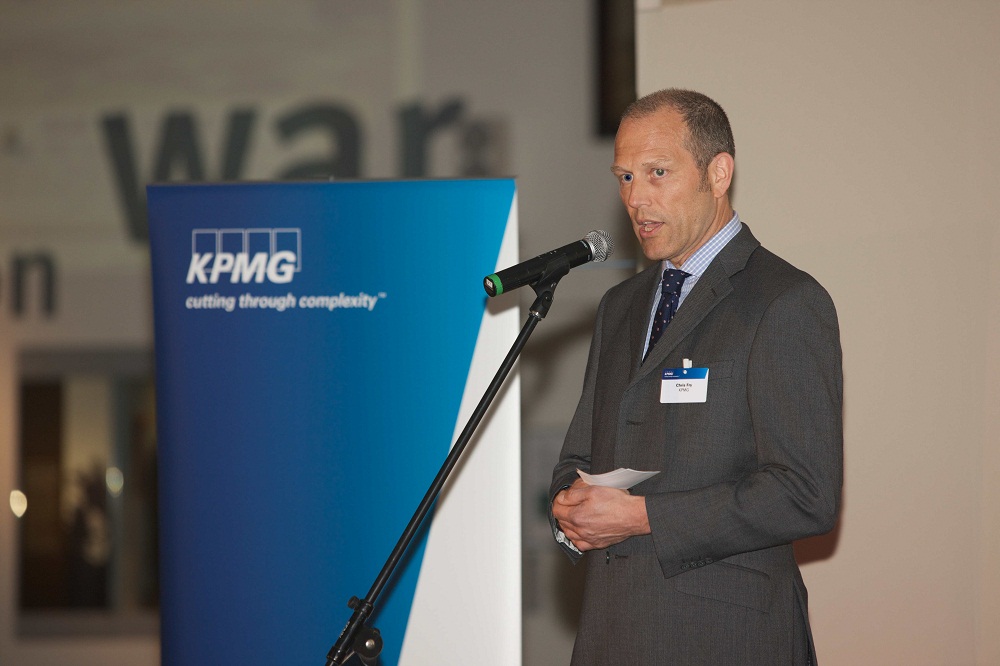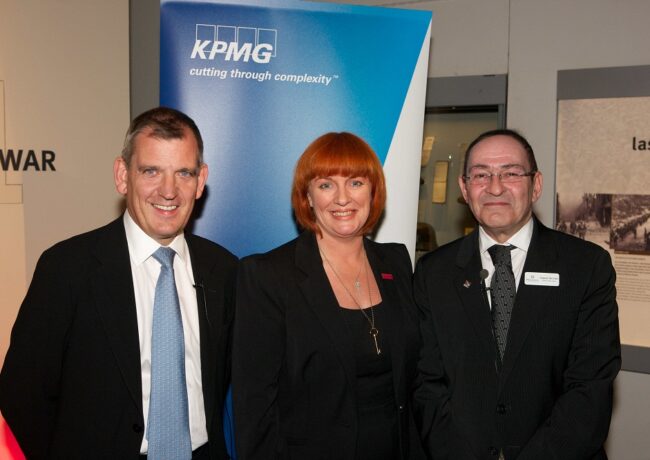Bernstein: councils key to tackling funding gap
Banks still show little sign of producing the "mature response" needed to end the development finance drought, Sir Howard Bernstein told guests at the KPMG annual property and construction dinner.
Bernstein, chief executive of Manchester City Council, took part in a pre-dinner discussion on stage with Barbara Spicer, his counterpart at Salford City Council, chaired by Bill Enevoldson, head of KPMG's public sector and infrastructure team in the north.
Bernstein said: "In the past couple of years Manchester has performed reasonably well, better than we would have anticipated. The threat to growth is not the appetite of the development community it's being able to access finance at the right prices. We've got a role to play in that and we are trying to fulfil that role from within local authorities but we need to see movement on a national level.
"I am not convinced we are going to see that mature response from the banks that would be conducive to development."
Regeneration policy remains too nationally focused rather than reflecting the distinct needs of local areas, Bernstein added.
Bernstein said: "I don't think the government gets regeneration. The same could be said of the last [Labour] government, to be fair. So often it seems the challenges faced in London must become the challenges the rest of the country faces in policy terms."
He added that a lack of the right skills in the Greater Manchester work force to enable people to enter the job market was the single most pressing problem facing the sub-region.
However, Bernstein said policy around regeneration tended to be focused on narrow issues such as transport or back-to-work training but rarely integrated programmes together.
He added: "Successful regeneration is not one thing in isolation it's where a range of policies combine to change a place. There is a lack of understanding about what are the funding schemes needed to make a difference and to create places in which people want to invest and create jobs."
Spicer criticised the lack of support for speculative business space from the Regional Growth Fund and said Salford would continue to pursue borrowing and intervene in schemes such as Greengate and Chapel Street as a means to pump-prime development.
 The dinner, hosted by Chris Fry, partner and head of property at KPMG in Manchester, was held at the Imperial War Museum North in the Quays and attended by around 70 clients and contacts of KPMG. After dinner the guests were treated to anecdotes from Stuart Dougal, a former FIFA referee and now a director in KPMG's restructuring team in Scotland.
The dinner, hosted by Chris Fry, partner and head of property at KPMG in Manchester, was held at the Imperial War Museum North in the Quays and attended by around 70 clients and contacts of KPMG. After dinner the guests were treated to anecdotes from Stuart Dougal, a former FIFA referee and now a director in KPMG's restructuring team in Scotland.




